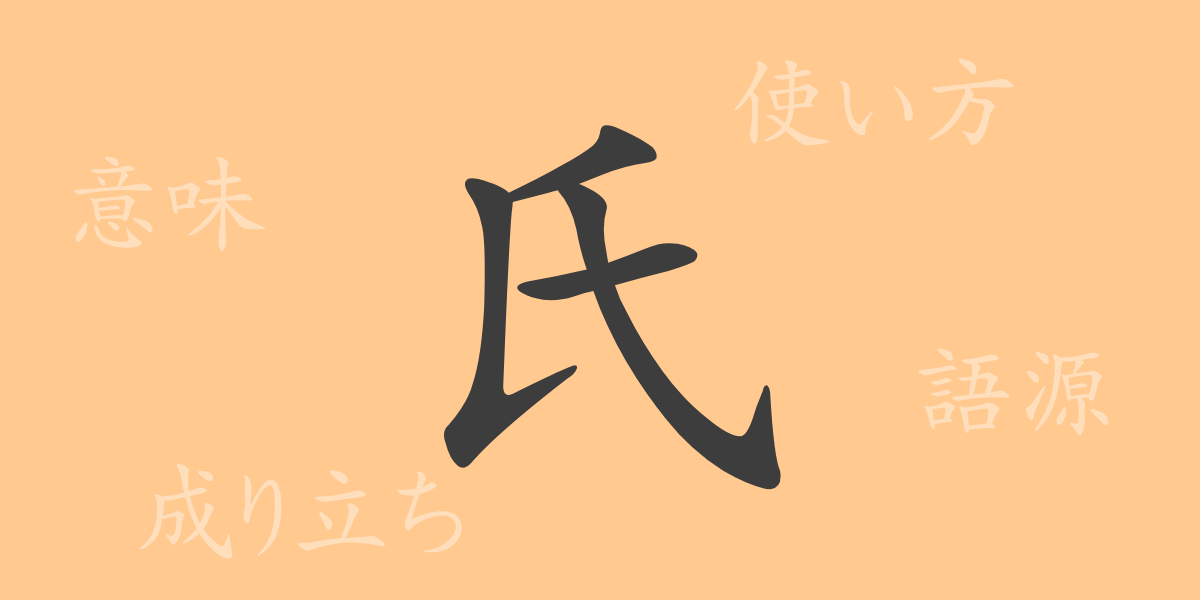Japanese has a unique writing system, with commonly used kanji (kanji) deeply rooted in daily life and culture. The kanji “氏(うじ)” is one such common character, playing an important role in indicating names and family lineages. This article delves into the origins, modern usage, and expressions of “氏(うじ),” exploring its charm and application in depth.
Origins of 氏(うじ)
The kanji “氏(うじ)” originates from ancient China, initially derived from a pictogram representing “river flow.” Over time, it evolved to indicate groups sharing a river, eventually signifying families or clans. In modern Japan, “氏(うじ)” is firmly established as a character used to denote surnames and lineages.
Meanings and Usage of 氏(うじ)
The kanji “氏(うじ)” primarily refers to a person’s surname (family name). It is also used to denote specific families, clans, or bloodlines. In legal terminology, it appears in terms like “氏名(しめい),” meaning full name. Additionally, “氏(うじ)” is used as an honorific, such as in “○○氏(し),” frequently seen in business and formal settings.
Readings, Stroke Count, and Radical of 氏(うじ)
Let’s take a look at the basic information about the kanji “氏(うじ).”
- Readings: The on’yomi (音読み) is “シ(し),” and the kun’yomi (訓読み) is “うじ(うじ).”
- Stroke count: “氏(うじ)” consists of 4 strokes.
- Radical: The radical is “氏部(うじぶ),” which is also read as “うじ.”
Idioms, Phrases, and Proverbs Using 氏(うじ) and Their Meanings
There are numerous idioms, phrases, and proverbs in Japanese that include “氏(うじ).” Here are a few examples:
- 氏素性(うじすじょう): Refers to one’s lineage or ancestry.
- 氏名不詳(しめいふしょう): Indicates that the name or surname is unknown.
- 氏族制度(しぞくせいど): A social system based on family clans.
- 同氏異名(どうしいめい): Refers to having the same surname but different given names.
- 門閥氏族(もんばつしぞく): Indicates families with high social status or power.
Conclusion on 氏(うじ)
The kanji “氏(うじ)” has played a crucial role in connecting people in Japanese culture and society. Used to denote surnames and family lineages, this character appears in legal documents, daily conversations, and as an honorific. Moreover, idioms and phrases containing “氏(うじ)” highlight the depth of the Japanese language. “氏(うじ)” will continue to be an indispensable part of expressing our identities.

























